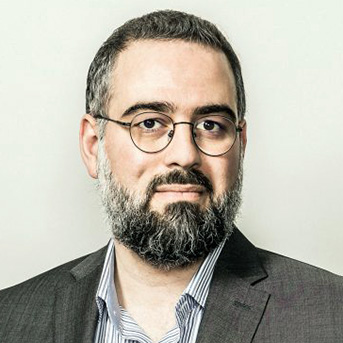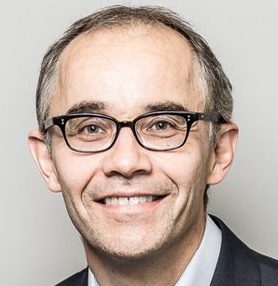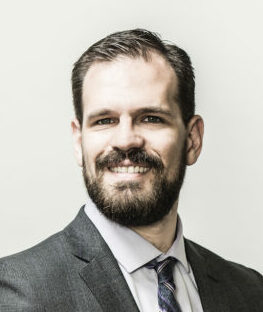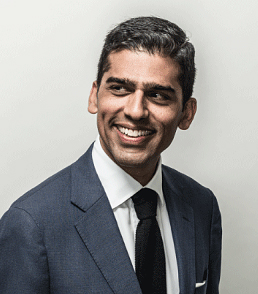York University’s Lassonde School of Engineering has announced the results of its 2022 Innovation Awards, which included two innovation awards, one graduate mentorship award, and a public engagement award.
The Lassonde Innovation Awards (LIA) acknowledge extraordinary research achievements, innovation and knowledge translation activities, and dedication to both science and engineering research at the Lassonde School of Engineering. The awards recognize research carried out in the last three years and each nominee must be a full-time or contract faculty member at Lassonde. Faculty are eligible to receive an award in each category only once every 10 years.
Faculty members from the Departments of Mechanical Engineering, Civil Engineering and Electrical Engineering & Computer Science were honoured this year.
The recipients are:
- Innovation Award (Early Researcher): Ali Sadeghi-Naini, associate professor, Department of Electrical Engineering & Computer Science
- Innovation Award (Established Researcher): James Elder, professor, Department of Electrical Engineering & Computer Science
- Graduate Mentorship Award: Garrett Melenka, associate professor, Department of Mechanical Engineering
- Public Engagement Award: Usman Khan, associate professor, Department of Civil Engineering
“The faculty members who received this year’s Lassonde Innovation Awards have made a wonderful contribution and positive impact on our School,” said Magdalena Krol, associate dean of research, innovation, enterprise and partnerships at Lassonde. “We look forward to supporting them in all their continuing endeavours as we work together to tackle the world’s greatest challenges.”
This year’s recipients demonstrate their commitment to innovative change through groundbreaking projects in science and engineering research. Details about each of the 2022 Lassonde Innovation Award recipients are below.
Ali Sadeghi-Naini: Innovation Award – Early Researcher

Sadeghi-Naini joined Lassonde’s Electrical Engineering and Computer Science Department in 2018, where he is currently an associate professor. He is also a Tier II Research Chair in Quantitative Imaging and Smart Biomarkers, a member of the American Association of Physicists in Medicine (AAPM) and the American Association for Cancer Research (AACR), as well as a senior member of IEEE Engineering in Medicine & Biology and Signal Processing Societies.
Sadeghi-Naini’s research focuses on the development of computer-aided imaging technologies that will improve personalized cancer treatments. His research investigates novel methods of multimodal cancer imaging, integrated with AI algorithms to derive quantitative biomarkers for diagnosing and characterizing abnormalities, predicting treatment outcomes, and tailoring therapies for individual patients. Sadeghi-Naini’s innovative work demonstrates extraordinary potential that can change the lives of cancer patients and their families. His research has been supported by numerous sources of funding, including the New Frontiers in Research Fund, Terry Fox Research Institute, and Natural Sciences and Engineering Research Council of Canada (NSERC), to name a few. He is also one of two researchers at Lassonde who have received generous funding from the Ontario Ministry of Colleges and Universities through the Early Researcher Awards (ERA) program.
In addition to his work at Lassonde, he contributes to research and education efforts at Sunnybrook Health Sciences Centre, Odette Cancer Centre, and the University of Toronto.
James Elder: Innovation Award – Established Researcher

Elder first joined York University in 1996 and has since become an established and respected researcher in Lassonde’s Department of Electrical Engineering & Computer Science as well as the Department of Psychology in the Faculty of Health. His consistent research contributions regarding human and computer vision have raised Lassonde’s profile and impacted research across multiple disciplines.
Elder’s research team integrates behavioural and computational methods to understand visual processing in the human brain, using this understanding to develop better computer vision algorithms. Much of his research involves collaborations with Canadian companies and has been applied to synthetic displays for helicopter navigation, highway traffic analytics and sports videography. Through continuous innovation with his students, he recently co-founded an AI start-up, AttentiveVision, which is commercializing a patented technology capable of producing a major league viewing experience with broadcast-quality video for minor league and amateur sports.
Elder continues to inspire innovation amongst others through his leadership in the development and co-directorship of the Centre for AI & Society (CAIS), his dedicated involvement as seminar coordinator for the Centre for Vision Research (CVR), his leadership of the $4-million ORF-RE Intelligent Systems for Sustainable Urban Mobility (ISSUM), and $1.65-million NSERC CREATE Training Program in Data Analytics & Visualization. His commitment to research and education has also resulted in numerous awards, including the Premier’s Research Excellence Award, the Young Investigator Award from the Canadian Imaging Processing and Pattern Recognition Society and the York University Research Leader Award, which he received three times.
Garrett Melenka: Graduate Mentorship Award

Melenka is an associate professor who first joined the Department of Mechanical Engineering in 2017. His research focuses on design, manufacturing, mathematical modelling and experimental analysis of advanced composite structures. The potential of his innovative work has been supported by several funding sources, including Mitacs Elevate, the NSERC Discovery Grant, NSERC Alliance International Catalyst Grant, the Lassonde School of Engineering Start-Up Grant and the Lassonde Innovation Fund.
Melenka’s impactful work at Lassonde is not only attributed to his research but also to the supportive environment he provides for his graduate student research team. He actively encourages the intellectual and personal development of his students through his commitment to understanding, provision of expert knowledge and research presentation opportunities. Melenka also prepares his students for their future education and career journeys by initiating open discussions and providing constructive advice. In addition, he has created a research environment that exemplifies equity, diversity and inclusion (EDI) principles. His recruitment strategy allows equal opportunity for students of diverse gender, ethnicity and experience. He also promotes inclusivity and initiative by routinely encouraging collaboration among team members within the research group.
Usman Khan: Public Engagement Award

Khan is an associate professor in the Civil Engineering Department who excels in bringing science to life through his commitment to public outreach and media engagement. Khan’s research focus is water resources engineering with an emphasis on urban hydrology and sustainable water resource management.
Along with his research, he demonstrates excellence in knowledge translation, by bridging the gap between the scientific research community and general public through media engagement and teaching opportunities. He has led discussions on various research topics and flood-related issues through appearances on CTV News, Global News, CBC News, Global Edmonton Radio and CFAX 1070 Radio, to name a few. In 2019, he was also invited to present his research regarding floods and sustainable infrastructure to the mayor of Toronto and Toronto councillors. Additionally, Khan inspires scientific research and public engagement in future generations by leading educational workshops for youth, in collaboration with various programs and events including Success Beyond Limits, SHAD, BEST, and the Canadian Engineering Grand Challenges. Even in the classroom, Khan commits to public engagement through his teaching style by delivering technical engineering skills by emphasizing the impact of engineering on society and the environment.


